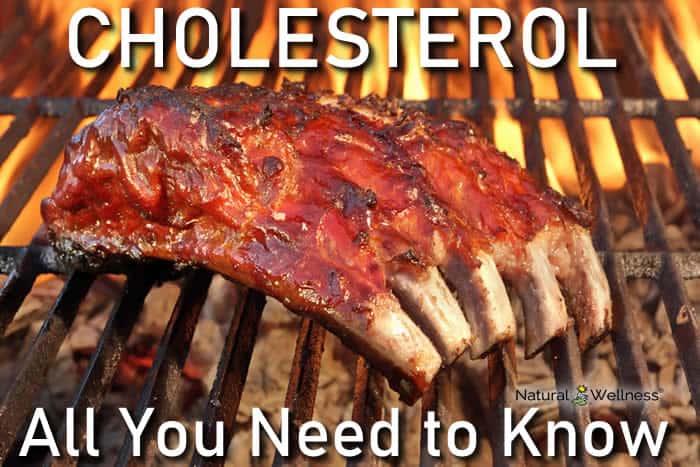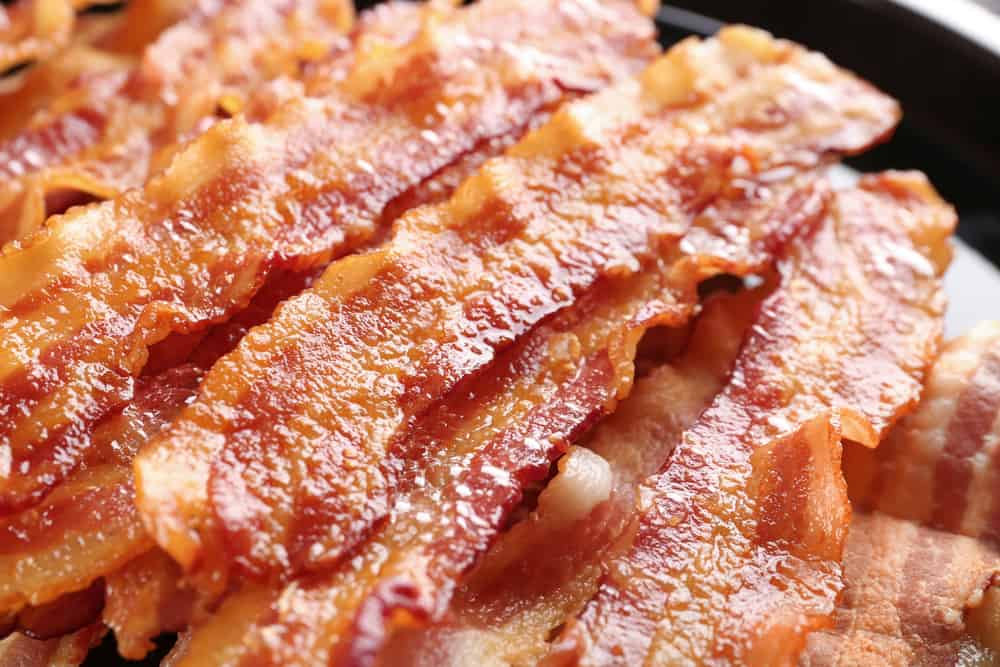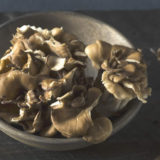

Think back years ago when there was a maximum on how much cholesterol you should be eating each day. Everyone was only eating egg whites because the yolk contained high amounts of cholesterol.
Then came 2015 and the Dietary Guidelines decided to remove the recommendation of limiting dietary cholesterol to 300 mg/day, while still advising to eat as little as possible. The reason? There was lack of evidence that dietary cholesterol was a factor in the development of cardiovascular disease.
In honor of National Cholesterol Education Month, we’re diving further into the basics of cholesterol. You’ll leave here with more knowledge than you came with!
What Is Cholesterol?
Cholesterol is a waxy, fat-like substance that is actually necessary for your body since it helps to build cells. (1) Your liver creates all the cholesterol you need, but you also get it from food sources where it’s referred to as dietary cholesterol.
There are two main types of cholesterol: LDL and HDL. (2)
- LDL (low-density lipoprotein) is considered “bad” cholesterol. It’s deemed “bad” due to the fact that it’s the main source of cholesterol that blocks arteries. You want your LDL cholesterol levels to be on the lower end at less than 100 mg/dL.
- On the other hand, HDL (high-density lipoprotein) is “good” cholesterol. This cholesterol helps to get rid of the excess LDL cholesterol floating around in the blood. When HDL cholesterol levels are high, that’s a good thing! You should strive to have HDL levels at 60 mg/dL or higher.
Symptoms of High Cholesterol
Unfortunately, when you have high cholesterol you will not show any symptoms. The only way to detect high cholesterol is to get a blood test.
There are individuals who are at higher risk of elevated cholesterol levels.
The factors include: (3)
- Poor diet
- Obesity
- Lack of exercise
- Smoking
- Older age
- Diabetes
There are also complications that come along with high levels of cholesterol. When the LDL (bad) cholesterol has been high for too long, there can be many deposits of plaque in your arteries which reduces or even stops blood flow.
Some serious complications can include:
- Chest pain
- Heart attack
- Stroke
Treatment of High Cholesterol
If your cholesterol is in the high range, there are many lifestyle adjustments you can try out before relying on medication.
Some changes you may want to consider include: (4)
- Eat heart healthy foods – incorporate a diet that emphasizes fruits, vegetables, and whole grains and limits saturated and trans fatty acids.
- Exercise – getting in moderately intense exercise can help raise HDL levels, which will then lower LDL levels. Don’t go too hard at first. Work your way up to a level that feels comfortable and your doctor gives the OK for.
- Quit smoking – HDL cholesterol will improve once you stop smoking. Your heart disease risk is also cut in half within a year of quitting compared to that of a smoker.
- Drink alcohol in moderation – for healthy adults, one drink a day for women and two drinks a day for men is considered a moderate amount.
- Lose weight – losing extra pounds and maintaining a healthy weight can help to reduce high cholesterol levels.
Sometimes these lifestyle changes aren’t enough, which may be the point your doctor recommends medication. Oftentimes genetics can play a role in our cholesterol levels regardless of our overall health.
Another option to take into consideration is supplementation. Natural Wellness’s Cholesterol Support is a synergistic blend of superior ingredients that naturally support healthy cholesterol and homocysteine levels. Learn more.
High Cholesterol Foods

As we previously mentioned, the 2015-2020 Dietary Guidelines removed the recommendation to eat no more than 300 mg of dietary cholesterol each day. Even though that is gone, it’s best to still limit your intake.
A 2020 study published in Circulation (5) discussed that even though other studies have shown that dietary cholesterol is not associated with cardiovascular disease, many high cholesterol foods contain saturated fat which raises an issue. Saturated fatty acids have been linked to cardiovascular disease for many years.
Instead, substitute those saturated fatty acids for both monounsaturated and polyunsaturated fatty acids. You find these fats in plant-based foods such as nuts, vegetable oils, and seeds. You can also get it from fatty fish like salmon, trout, and mackerel.
Beyond cardiovascular disease can come other issues with high amounts of dietary cholesterol intake. One study published in 2020 (6) found that high cholesterol diets impacted gut microbiota and also induced fatty liver and steatohepatitis (inflammation and fat accumulation).
In the end, our bodies can make all the cholesterol we need from our livers. The same goes for animals. That’s why animal products contain cholesterol, with the highest cholesterol option you can eat being liver (since it is the cholesterol factory).
Other high cholesterol foods include:
- Cheese
- Fatty meats such as pork spareribs, chicken thighs, and bacon
- Dairy desserts such as custard and ice cream
- Eggs
- Butter
- Shrimp
Conclusion
We need cholesterol, but don’t really need it in the dietary form. Although limitations have been removed, it’s best to focus on a more plant-based diet that’s full of fruits, vegetables, whole grains, and healthy fats.
Keep up to date with your doctor appointments so you get regular screenings on how your cholesterol levels are holding up. Genetics can play a factor in elevated levels which may require medication, but dietary and lifestyle changes often are helpful in getting cholesterol at a normal range.




